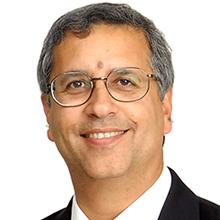HRH The Duchess of Cornwall opens University of Southampton's MRC Epidemiology Resource Centre
The University of Southampton's Medical Research Council unit that has led the world in its studies of the fetal and infant origins of adult disease over the past twenty years has recently been reconfigured as the MRC Epidemiology Resource Centre. The Centre was launched by HRH, The Duchess of Cornwall, President of the National Osteoporosis Society, during a visit to Southampton on Monday 23 May.
Scientists at the Centre, which is located at Southampton General Hospital, have been at the forefront of research which demonstrates how growth and development in fetal life, infancy and childhood have powerful and long-lasting influences on the risk of coronary heart disease, stroke, type 2 diabetes, and osteoporosis in later life.
Director of the newly-named Centre is Professor Cyrus Cooper, an internationally recognised expert in osteoporosis and rheumatology, who is also Associate Director of Research at the University's Medical School. He takes over following the retirement of the unit's long-standing director, Professor David Barker, last year.
"It is a great honour for us that Her Royal Highness is officially opening the Centre," commented Professor Cooper.
"I am delighted to confirm that with continued support from both the University and the MRC, the Resource Centre will maintain a strong focus on environmental epidemiology and continue its groundbreaking investigations into the developmental origins of chronic disease through the unique collection of studies it has established.
"The Southampton Women's Survey, which is run by a team at the Centre, is the largest study of women's health and lifestyle ever carried out in the UK; and the Hertfordshire Cohort Study looks at the epidemiology of a group of 3000 men and women born in Hertfordshire in the 1930s, for whom unusually comprehensive birth records were kept. Both these studies have a wealth of data that can give us huge insights into the fetal and infant origins of adult disease.
"The Centre will also provide a framework for employing, training and supporting staff engaged in MRC directly-supported epidemiology programmes in Southampton; and manage and develop other MRC epidemiological resources and facilities, as needs and opportunities emerge," added Professor Cooper.
The Resource Centre will contribute strongly to clinical research in Southampton; serve as a flagship for training in clinical epidemiology; and contribute significantly to the public understanding of science. The scientific work has attracted much media attention. Six films have been made for television and more than 200 newspaper and magazine articles have been written about the research carried out here.
Prior to opening the MRC Centre, The Duchess visited the Osteoporosis Centre at Southampton General Hospital and heard about a number of local research projects that are leading to greater understanding of the causes of and treatment for osteoporosis.
